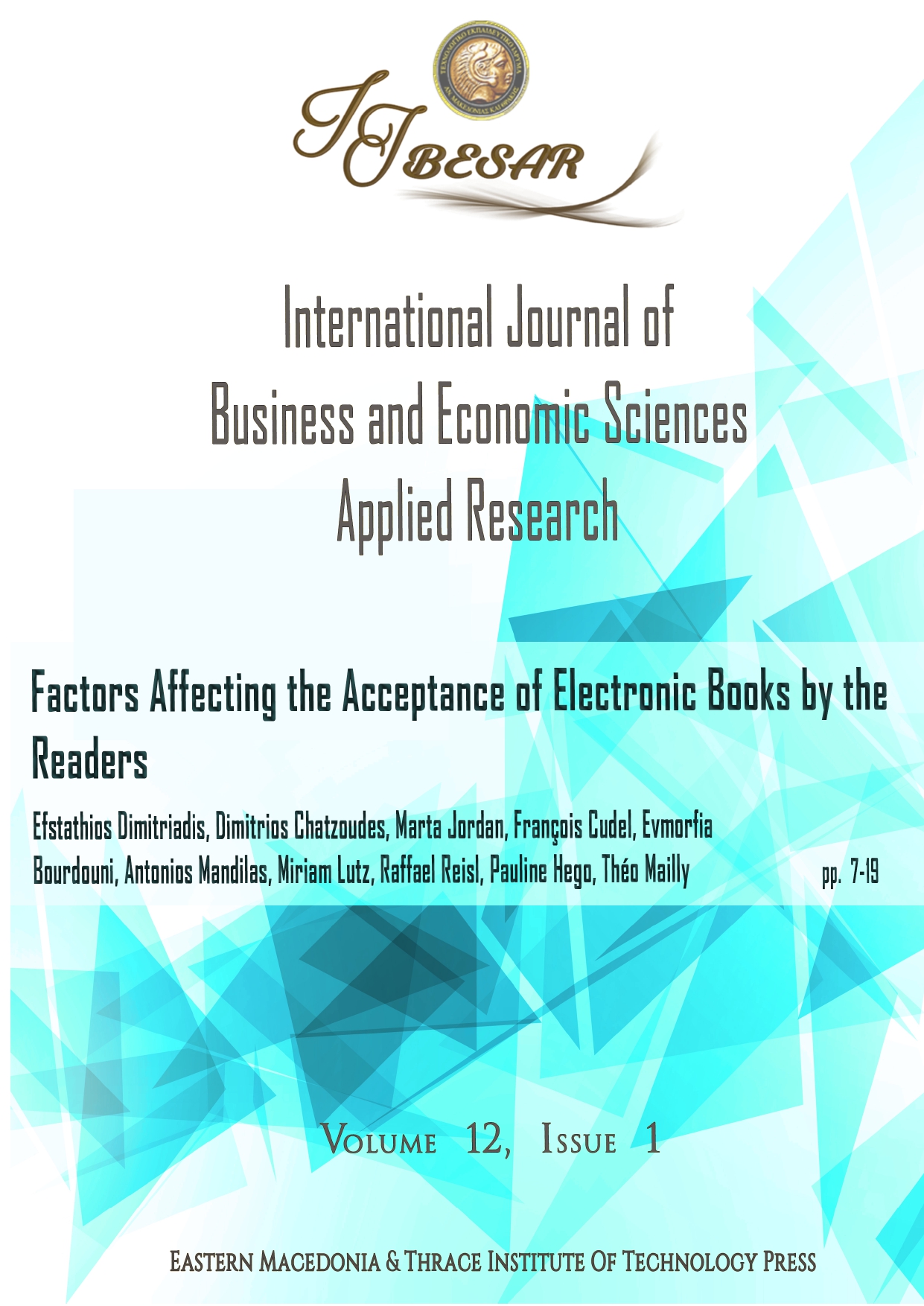Financially Constrained Firms: The Impact Of Managerial Optimism And Corporate Investment – The Case Of Greece
Financially Constrained Firms: The Impact Of Managerial Optimism And Corporate Investment – The Case Of Greece
Author(s): Jelena Stankevičienė, Željko Šević, Alexandra Tsinani, Dimitrios MaditinosSubject(s): Economy, Management and complex organizations, Transformation Period (1990 - 2010), Present Times (2010 - today)
Published by: Τεχνολογικό Εκπαιδευτικό Ίδρυμα Ανατολικής Μακεδονίας και Θράκης
Keywords: Managerial optimism; investment; financial constraints;
Summary/Abstract: Purpose: The purpose of this paper is to examine the impact of managerial optimism on corporate investment regarding the financially constrained firms for the case of Greece. Taking as a fact that managers principally are optimistic and often overconfident an effort is made to highlight the effect of this psychological bias on managerial investment decision – making. Design/methodology/approach The research methodology is based on the approach that the investment-cash flow sensitivity of firms with optimistic managers is more pronounced in financially constrained (equity dependent) firms. Data is gathered from the stock market as well as from balance sheets and cash flow statements for all firms of the sample. Focus is placed on every firm’s annual report in order to gather all necessary data for the methodology. Additionally, stock prices are classified on an everyday basis for all firms for the years from 2007 to 2012. Fixed effects panel regression of capital expenditures on several control variables is used among all stocks of the sample’s 184 non-financial firms with the highest financial constraints in order to examine the impact of the behaviour of optimistic managers to firm financial constraints. Findings Constrained firms exhibit a lower profitability, a lower pay-out ratio, a lower excess value, and are more likely to be financially distressed. The empirical findings clearly show that the investment-cash flow sensitivity of firms with optimistic managers is more pronounced in financially constrained (equity dependent) firms. The difference between unconstrained firms and constrained firms is that on one hand unconstrained firms, with more cash flow, tend to use debt in order to increase both their investment as well as their dividend payment, and on the other hand, constrained firms have to choose whether to apportion their cash flow to investment or dividend payments. Research limitations/implications In this study the regressions that were run were for the whole of the 6-year period of 2007 to 2012. However, testing each year individually could provide researchers with the ability to compare different results, to find out whether there was anything special statistically for each specific year and maybe test the period after the year 2010 when the Greek crisis had started to come up on the horizon. Additionally, supplementary research is proposed regarding the impact of managerial optimism in order to examine its impact on the whole range of decisions that managers have to make Originality/value As part of the literature which links psychological and economic variables to test behavioral finance models, this paper is the first to investigate managerial optimism and its impact on corporate investment in Greece. The importance of this study lie in finding how managerial decision making works within a firm, how biased a manager is when he has to make extremely important decisions regarding the firm’s future performance and success, and how managerial optimism affects corporate investment decision-making especially in financially constrained firms.
Journal: International Journal of Business and Economic Sciences Applied Research (IJBESAR)
- Issue Year: 12/2019
- Issue No: 1
- Page Range: 39-49
- Page Count: 11
- Language: English

